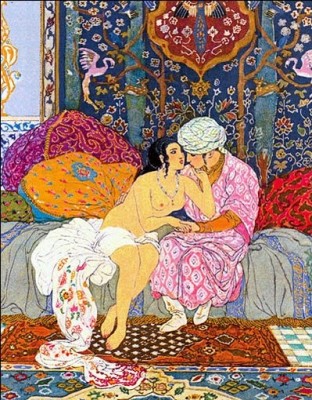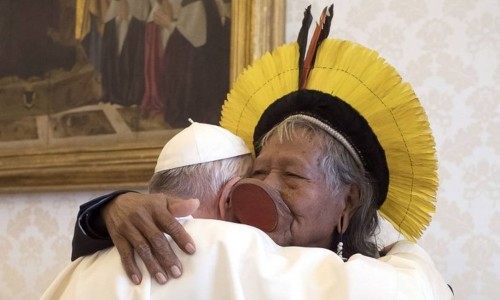Apparently, to have sexual relations with someone who we have kept a good emotional relationship for many months or years is the opposite of feeling alone. However, the intimacy of the bodies, as pleasurable as it may be, isn’t quite the same as affective intimacy. In a long standing man woman relationship, the couple’s sex life may have very different meanings depending on the moment. It becomes painful when the couple’s sexual relations turn emotionally impoverished. We feel alone.
This person has become less important to us and in this situation, which is the most physically intimate act that two people can experience, we feel intimately and emotionally distant. Immediately after having sexual relations we may feel the need to distance ourselves, to get away from this person, or even begin to remember everything that distances us from him or her in the first place: past wounds, frustrations, deceptions.
If this feeling becomes dominant during erotic moments, it is a symptom of severe crisis for both people in the relationship, and which can lead to a definitive break up. When the sexual pleasure becomes empty of tenderness, caring, and love, we dehumanize the erotic experience. The person who one day may have been so significant to us slowly turns into a stranger. Trust is broken. The joy of living diminishes.
It is only when sexuality is permeated by a live feeling of love can we ‘make love’. Only then is there the possibility of true togetherness, only then is the painful loneliness of the human condition placated momentarily in a sweet and cozy atmosphere. For as pleasurable as sex can be in itself, when it is not permeated by strong feelings of love, it is powerless to shattering the shell of loneliness. We become gratified and alleviated in body, but the pain of loneliness, consciously or not, remains inside of us.
Of course, none of us has the power to awaken in one’s self, by an act of sheer will, a strong feeling of love for someone. We can live side-by-side with someone in a romantic relationship for long periods of time, illuminated with greater or lesser frequency by the light, sweetness, and warmth of love. If this experience becomes rare, or absent, we continue inside the prison of loneliness. It may be comfortable and useful to live with someone, to talk, to divide practical tasks. But without the joy of loving, it is a very poor togetherness.
There are marriages which last decades, where love either does not exist anymore, or never did. Our role is not to judge the choices that two people make and the reasons they have for living together. Many will take little over nothing. For many, having the physical presence of someone at home alleviates the pain of loneliness, gives the feeling of having protection. But for those who have once, however short or long lived, had the joy of experiencing the delightfulness of the profound togetherness in reciprocal love, it isn’t easy to conform with the loss. The pain of such an absence, of the longings, and the desire to return to the lost paradise goes on panging and throbbing regularly.
The joyful experience of breaking the shell of loneliness and feel plentiful, whole, and integrated in something greater, to be in communion, is not exclusive to erotic love affairs or intense, affective relationships between two people. In nature, in music, sports, reading, writing, praying, meditation – in almost every life situation it is possible to overcome the prison of isolation, of egoism, and transcend the aridness of our own limits and worries, big and small. But it is undeniable that we all yearn for human togetherness, for the happy, intense and loving communion with another human being.
Like everything that is grand and important in life, this experience depends on various factors such as; our courage, capacity to surrender, being unattached, generosity, aspiration. It depends even still on factors that are beyond our effort and dedication. Some call it luck, others destiny. For he who aspires and prepares himself correctly, the blessing, the miracle will rise again and again, when life sees that we have fertile ground enough to be once again fecundated by the transcendent.
I close with this citation from the autobiography of the English philosopher Bertrand Russell (Literature Nobel Prize Winner 1950)
‘I have sought love, first, because it brings ecstasy – ecstasy so great that I would often have sacrificed all the rest of life for a few hours of this joy. I have sought it, next, because it relieves loneliness – that terrible loneliness in which one shivering consciousness looks over the rim of the world into the cold unfathomable lifeless abyss. I have sought it finally, because in the union of love I have seen, in a mystic miniature, the prefiguring vision of the heaven that saints and poets have imagined. This is what I sought, and though it might seem too good for human life, this is what – at last – I have found.’
Related Articles

















